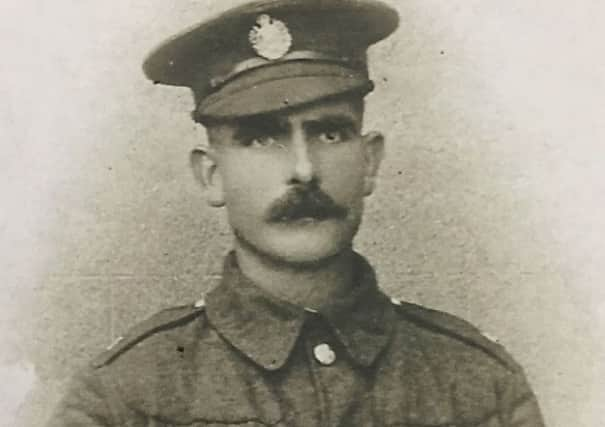Husband '˜made non-effective by death, widow told by war office


Your husband has been made “non-effective by death”, it informed Nelly Ayres in October 1917.
Sapper Arthur Ayres, of the Royal Engineers, had been wounded at Passchendaele and died in an artillery blast at a military hospital near Boulogne three weeks later, as he helped bandage injured comrades.
Advertisement
Hide AdAdvertisement
Hide AdHis paternal granddaughter, Sue Patterson, from Leeds, was among those at Ypres yesterday, remembering his sacrifice.


Despite its regimented language, Nelly had been “greatly comforted” by the letter, she said.
The news left her a widow after nine years of marriage, with four small sons.
“The four boys and Nelly were very close and very poor, they were known not to have shoes,” said Mrs Patterson, 56.
“She never remarried, she lived for her sons.


Advertisement
Hide AdAdvertisement
Hide Ad“My father was a very peace-loving man, he was not a pacifist, he just thought it should have been the war to end all wars.
“None of the boys ever came to see Arthur’s grave. They said it would be too sad for them.
“But their children, and Arthur’s great-grandchildren, have come out to honour their grandfather and great-grandfather.”
Also at the centenary service was Miranda Ingram, whose great-uncle Private Thomas Madelin died at 25.
Advertisement
Hide AdAdvertisement
Hide AdHis tale carries extra sadness for the family - after he died he was buried in a marked grave on the battlefield, but further fighting later obliterated it.
His name is on the wall at Tyne Cot cemetery, but Ms Ingram made a point of visiting the area where he died and tying a poppy cross to a tree there.
She said: “The absolute bereavement was awful. His father only lived for five more years and died in his early 60s. It may have been grief that made it happen earlier than it might have done.”